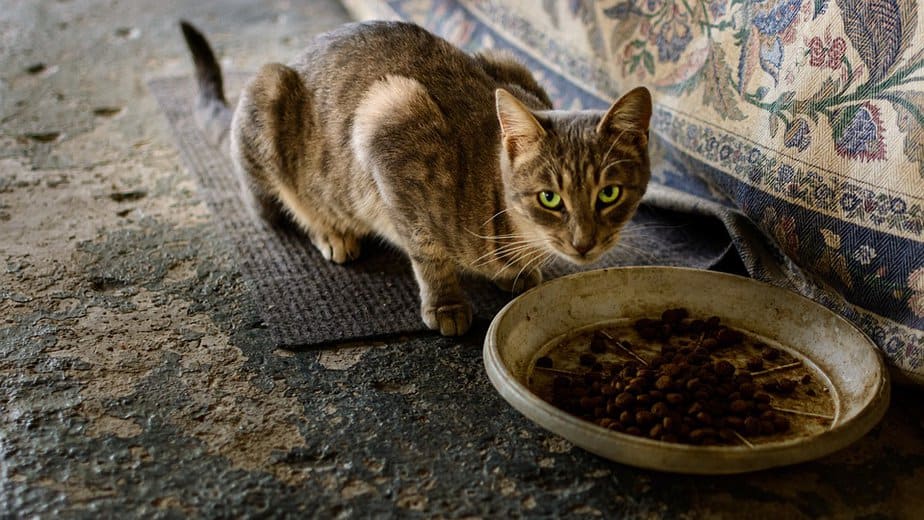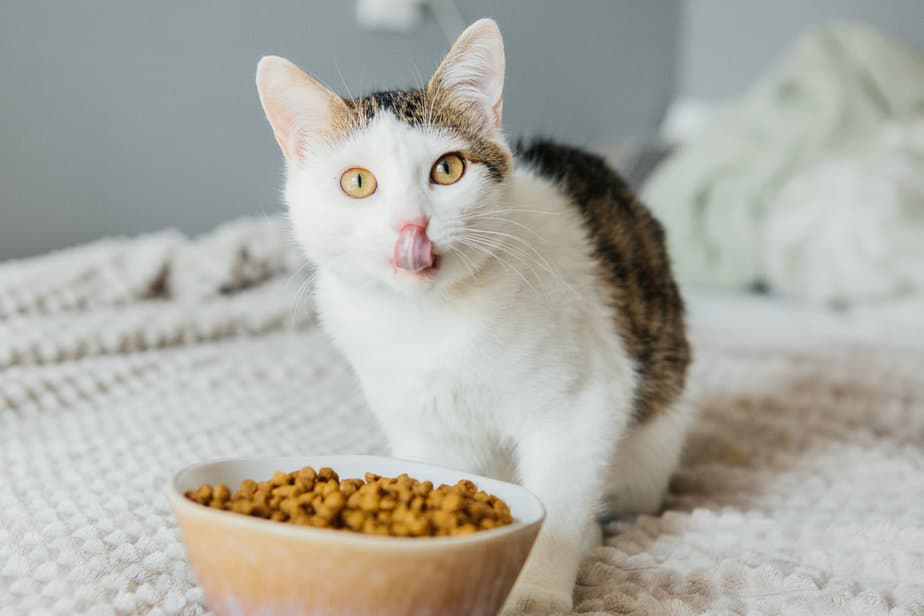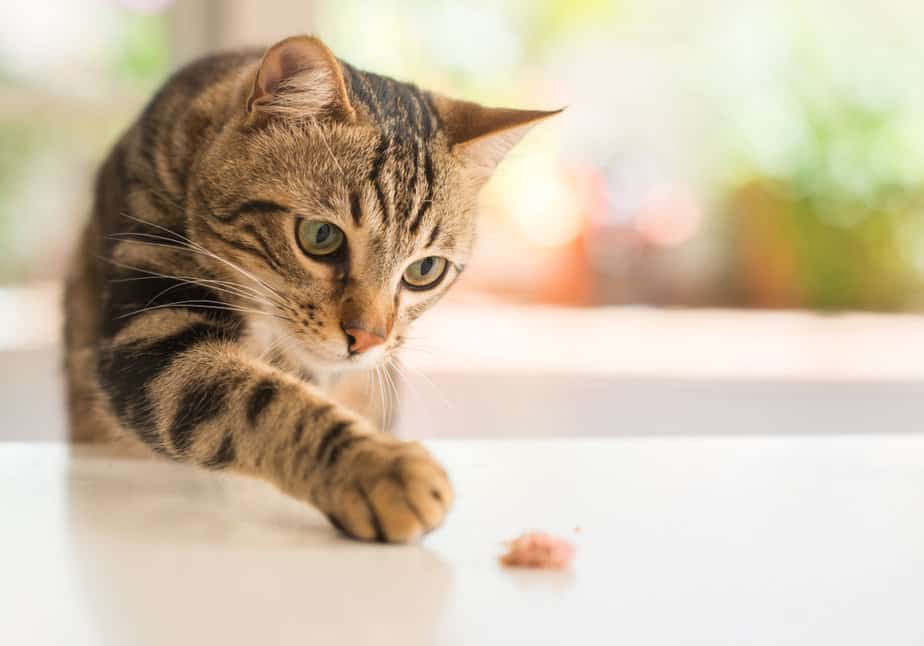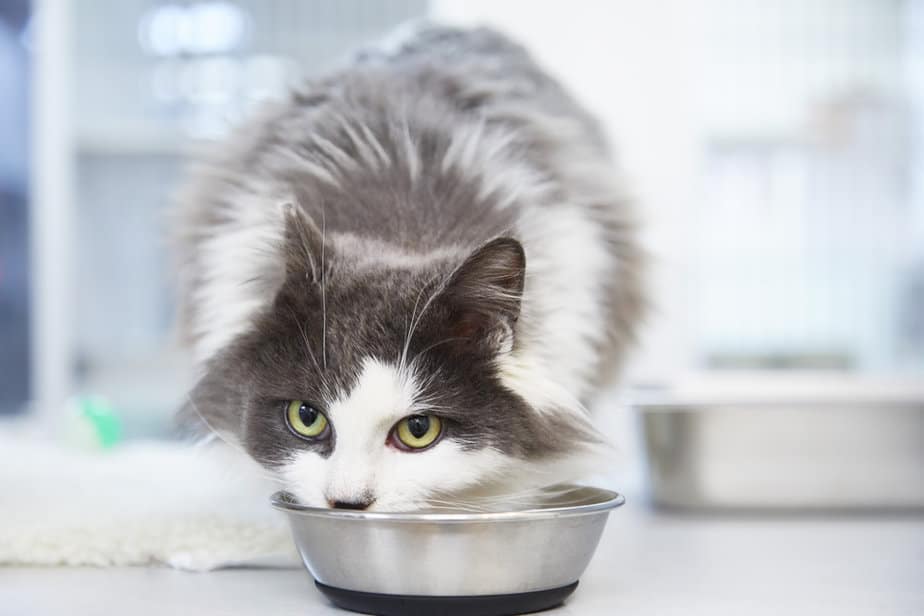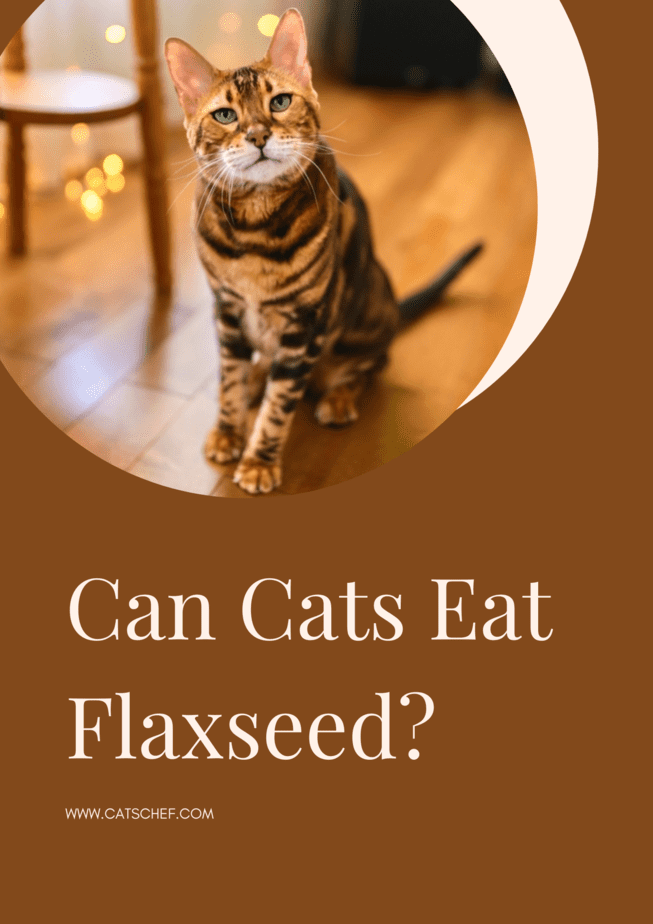📖 Table of Content:
Can cats eat flaxseed? I can’t even begin to imagine what has happened to make you wonder about this. Perhaps your pet somehow got stuck in your pantry? Yet again?!
Hey, I’m not judging! I kind of have the same problem myself. It’s hard keeping them out of the kitchen at times. Well, most of the time, if we’re being honest.
Flaxseeds are inexpensive and come in handy in a variety of meals. They’re one of those foods that are a true delight to have around. They mix well with a lot of dishes and are cheap.
Some people don’t actually believe in cheap foods and will disregard them as healthy. However, this is entirely wrong because flaxseed has many benefits to offer us.
But what about our felines? We know that they’re usually denied human foods but some can actually be incorporated into their diets. Or are you in the wrong?
Well, it depends. You can never be too safe when it comes to your furry companion. They’re always up to something and you constantly have to keep an eye on her.
However, that’s just not possible sometimes. Quick as a bolt of lightning, she’ll climb the top counter before you can even bat your eyelashes.
But what if that top counter is your stash of flaxseed? I know she just had to dip her paws in the little bag and try out this new food she hasn’t tried out before.
Honestly, nothing can surprise me anymore from these inquisitive creatures. But can cats eat flaxseed; is it something we should just laugh off?
I’m not going to leave you hanging anymore, so let’s dig into the nuances of this tiny food. Whatever it might be, we’re going to find out if it’s harmful to our pets.
Can cats eat flaxseed?
I don’t want to bother you anymore, so I’ll just keep it short and simple. The answer is yes – cats can eat flaxseed. However, don’t be too quick to move on with this information.
Everything in life comes with a but, and so does this answer. You see, sometimes things just aren’t that easy although our felines might think otherwise.
They see something they like, it smells nice and it’s down their throats in no time. Three easy steps that might look like a disaster in our eyes.
However, the good news is that flaxseed is not toxic to cats. At least this should ease some of your worries. But there’s a lot more to these little seeds than what meets the eye.
Are there any benefits of these seeds?
Of course, there are! Flaxseed is one of the oldest crops in the world and is widely known for its beneficial use. I wouldn’t say it’s a superfood but it’s definitely near.
We know for a fact that it’s packed with numerous health advantages for humans. What happens when this seed enters our pets’ bodies?
Should we enter panic mode or brush it off? We know it’s not poisonous, but there are certain suspicions since felines are carnivores.
1. Traces of protein
When you have an obligate carnivore for a pet, you must constantly think about its diet. It’s their number one source of nutrients needed for their survival.
For instance, protein is one of the most important nutrients a cat needs. If she were to live without it, she wouldn’t last very long. Thankfully, flaxseed has a decent amount of it.
It’s certainly not enough to fulfill her dietary requirements, but it can be a great addition to her meal sometimes. Protein is what keeps your furry companion healthy and energetic.
It fuels her body in many ways and keeps her immune system in check. Protein also helps keep her fur shiny and slick, strengthening the hair which makes her shed less.
I don’t know how keen your pet is on playing and doing all kinds of antics, but protein is actually encouraging her to do so. It’s one of the main sources of energy next to fats.
Everything you see when you look at your cat is fueled by protein. This important nutrient aids in keeping her bones and teeth healthy and strong as well.
2. Healthy fats
I’ve already mentioned that fats are doing great work for your feline companion next to protein. But it’s not just energy that booms from healthy fats.
Unsaturated fats are something everyone should be consuming. These seeds don’t have much of them, but it’s enough to make this food a common addition to her diet.
Can cats eat flaxseed because of these fats and what do they actually do for felines? This is a really good question since we mostly tend to associate fats with something not healthy.
However, it’s not just something that makes you chubby. Unsaturated lipids also feed your pet’s fur and skin, making it elastic and shiny.
Not to mention how they help with other various body functions. But what seems to stand out the most is how they help decrease the cholesterol levels in the blood.
Unlike healthy ones, saturated fats might be an issue. They do the opposite of unsaturated fats, which means a lot of health issues for your cat.
The fats found in flaxseed make it okay for cats to eat. Moreover, they can help prevent certain heart diseases, as well as strokes.
3. Can cats eat flaxseed because of fiber?
If you want to know can cats eat flaxseed because of this nutrient we better start digging. Flaxseed is commonly known and used to improve digestion.
The high amount of fiber can really help out a person in trouble. But what is your pet going to do with this much fiber?
Felines also need dietary fiber to help regulate their digestive organs and tracts. However, too much of this nutrient can have an adverse effect.
You never want to overdo something, so you might want to take the same precautionary measures when it comes to your furry companion.
Felines are usually sensitive creatures, even if their appearance sometimes might tell a different story. Still, if cats eat flaxseed in high quantities, it can cause them some discomfort.
While it’s commonly used to relieve constipation, you might create a totally opposite effect. If she really indulges in it, your pet might get diarrhea and have stomach pains.
Therefore, it’s best if you don’t get ahead of yourself. I know you like what you’re hearing so far with protein and healthy fats going on, but make sure she takes it in moderation.
4. A source of antioxidants
If you don’t know what these are, prepare to hear all the good news. Antioxidants are substances that are found in a fair amount of flaxseed.
They help prevent certain diseases and damage from being done to your pet’s body. Moreover, they fight free radicals in the organism and keep the peace that way.
I can’t take just one of the benefits these substances offer, because tons of them are worth mentioning. For instance, antioxidants take care of the brain, and immune system, as well as sight, smell, and others.
Can cats eat flaxseed oil?
Sure enough, they can! Not only can cats eat flaxseed oil, but you should try to incorporate it as much as possible. But first of all, talk to your vet about it.
The oil is derived from flax plant seeds. It might be a weird thing to do, but offering it to your feline just might do the trick.
Flaxseed oil is packed with omega-3 fatty acids which hold several health benefits for felines. For instance, they have anti-inflammatory properties that help fight off various diseases.
Also, it’s one of the acids that feed your cat’s skin, bones, and fur. All that fluffiness is thanks to these omega-3 fatty acids!
Next to these fatty acids, flaxseed also contains various vitamins and minerals, as well as dietary fiber. This sounds amazing but please make sure you contact your vet before using it in your cat’s food.
Can cats eat flaxseed all the time?
Just like with any food out there, there might be some downsides to cats eating flaxseed. It’s not as common, but some digestive issues might occur after a portion of this food.
Therefore, you shouldn’t be feeding your pet flaxseed all the time. Remember that it’s plant-based food while your cat needs a meat-based diet.
Plant matter just can’t offer your pet the nutritional benefits necessary for her survival and growth. Sure, it might come in as a great snack sometimes, but don’t be so sure your pet’s going to love it.
Felines aren’t usually interested in gulping down some random seeds, so good luck with making her try. I know how stubborn mine is, but thankfully, they don’t need flaxseed in order to survive.
Moreover, if you force it too much, you might create a negative effect. While cats can eat flaxseed and it might benefit them, you might overdo it.
Too much flaxseed can cause diarrhea, stomach pains, as well as bloating. You’re looking for ways to help and improve your pet’s quality of life and not the opposite.
